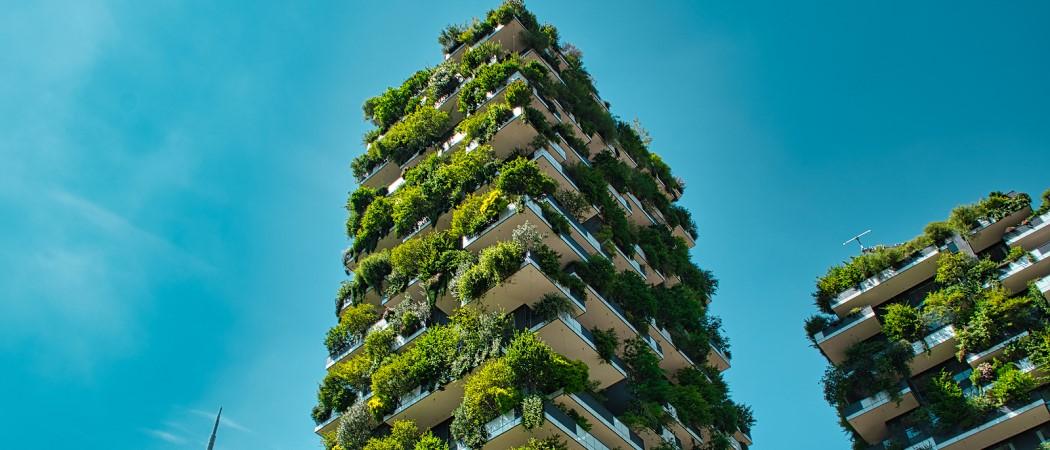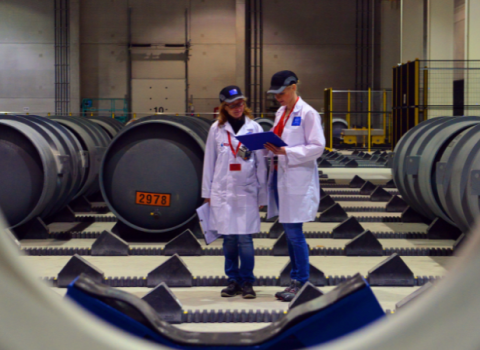“We are preparing the post-COVID world. A place where generations meet, life is affordable, the planet is protected and style matches with sustainability,” says Commission President Ursula von der Leyen, launching first phase of the New European Bauhaus

The Bosco Verticale (Vertical Forest) towers in Milan, Italy.
The European Commission has launched an online campaign to harvest fresh ideas from scientists, artists and companies on how to create a bridge between research and culture, and help the EU frame its push for a greener economy as a cultural movement.
The “New European Bauhaus” will explore better and more energy-efficient ways for Europeans to live after the pandemic, said Commission President Ursula von der Leyen. “It is about matching sustainability with style, to bring the European Green Deal closer to people's minds and homes,” she said.
With the new web platform, the Commission wants to encourage scientists to work with artists and build a bridge between technology and culture.
The ambition for the New European Bauhaus is to develop a framework to support, facilitate and accelerate the green transformation by combining sustainability and aesthetics, said Mariya Gabriel, EU commissioner for research and innovation. “By being a bridge between the world of art and culture on one side and the world of science and technology on the other, we will make sure to involve society as a whole,” she said
These are lofty ambitions, but for now, the campaign lacks details about how the EU’s existing research and innovation programmes – including Horizon Europe and its components – would contribute to the new cultural movement.
Elisa Ferreira, EU commissioner for cohesion and reforms said resources from Horizon Europe, the European Institute of Technology (EIT) and the European Innovation Council (EIC) would be pooled to make the Bauhaus plan a reality.
“We need to work together on this,” said Ferreira. “We can see that there is a very strong role here for startups and innovators.”
But the Bauhaus plan has left the research and innovation community wondering what exactly it is about. Universities do not know yet whether they will be involved, and in what capacity, while research associations are wondering to what extent the new initiative will piggyback on the Horizon Europe budget, for which scientists fought until the final days of intense negotiations that ended with a compromise a few days before Christmas.
The European Parliament has previously complained that the plan lacked in substance, with MEPs showing concern about how the projects would be funded. The Parliament is not keen on endorsing a top-down system to fund arts and culture projects.
According to Christine Lemaitre, CEO of the German Sustainable Building Council, the Bauhaus movement could for example help scale up existing technologies for sustainable buildings. “The challenge is not to do more research, the challenge is to bring them to market,” she said.
Universities could also help in this process by coming up with courses and programmes that highlight these technologies. According to Lemaitre, students who are engaged in the green movement are not always aware that there already are technologies that could help mitigate the impact of climate change and universities could help fill that knowledge gap. “Universities play a crucial role to provide the understanding that we have the tools and solutions [for sustainable buildings],” she said.
The plan was first announced by EU president Ursula von der Leyen during her state of the union speech in September. Later on, commissioner Gabriel unveiled further details about what kind of projects would become part of the plan in the first half of 2021.
According to details unveiled on Monday, the Commission sees the call for ideas as the beginning of a co-design process for a more sustainable economy. Artists, designers, engineers, scientists, entrepreneurs, architects, students and ordinary citizens can contribute their ideas online. Companies and non-profits alike are welcome to put more effort into the design of the plan and become partners of the Commission in the rollout.
The Commission will also award €30,000 prizes over the next few months to the first ideas that adhere to the Bauhaus principles.
Editor's note: This story was updated at 16:40 CET, 19 January.





 A unique international forum for public research organisations and companies to connect their external engagement with strategic interests around their R&D system.
A unique international forum for public research organisations and companies to connect their external engagement with strategic interests around their R&D system.